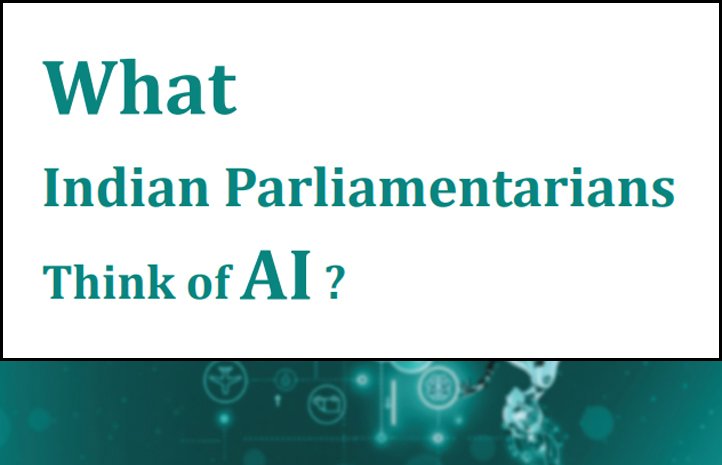The rapid evolution of AI marks a significant milestone in technological advancement. Its transformative influence spans diverse sectors including healthcare, education, finance, transportation, and agriculture, among others. As AI continues to progress at an unprecedented rate, it has garnered considerable attention as a focal point of policy discourse globally, including India. Governments worldwide are confronted with the task of regulating AI technologies, struggling with the imperative to harness its potential for societal benefit while simultaneously addressing potential risks and harms. Amidst this global dialogue, jurisdictions such as the European Union (EU), China, Australia, and Japan have already embarked on the path of implementing legislation to manage the implications of AI effectively. Consequently
Recognising the importance of fostering a comprehensive understanding of AI among Indian parliamentarians, the Institute for Governance, Policies, and Politics, in collaboration with the AI Knowledge Consortium, undertook a survey to gauge parliamentarians' perception and expectations of AI. Furthermore, the Institute organised a workshop aimed at enhancing parliamentarians' awareness of AI fundamentals, its potential impacts, both constructive and destructive, and the diverse global perspectives on AI governance. This report presents the findings of the survey conducted to elucidate parliamentarians' viewpoints on AI.
Through a comprehensive examination, this report delves into parliamentarians' awareness, perception, expectations, and approaches towards governing AI. As India endeavours to position itself as the third-largest economy globally in the coming decade, understanding parliamentarians' perspectives on AI governance assumes paramount importance as AI will be a useful tool to accelerate the nation's economic growth by way of fostering innovation and safeguarding societal interests at the same time.
Objectives of the Study :
1. To understand the level of awareness about AI amongst India's parliamentarians.
2. To understand the perception and expectations that India's parliamentarians hold regarding AI.
3. To identify barriers to understanding the AI ecosystem and challenges hindering effective policymaking.
4. To investigate the regulatory approach as perceived and desired by India's parliamentarians for governing AI.
AI has become a pressing issue worldwide, stirring discussions on its far-reaching implications across various sectors. While promising substantial benefits, AI also poses profound ethical concerns, potential risks, and intricate regulatory challenges. Effective AI regulation has thus become a critical aspect of tech policy.
In India, the discourse on AI governance is active, with stakeholders striving to establish robust regulatory frameworks while fostering innovation and economic growth. The government aims to position India as a global AI leader by 2030, emphasising on ethical application, and establishing regulatory safeguards against its misuse. From 2016 to 2020, jurisdictions like the USA, UK, EU, and China have initiated AI roadmaps and institutional frameworks, reaping AI's benefits. India, too, has launched various initiatives to leverage AI for national development, for instance, the National AI Strategy, National AI Mission, National AI Platform, and the formulation of the National AI Ethics Guidelines, which underscores the government's commitment to responsible AI and development and deployment.

